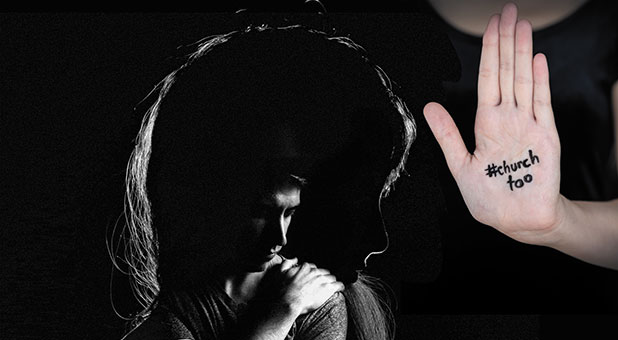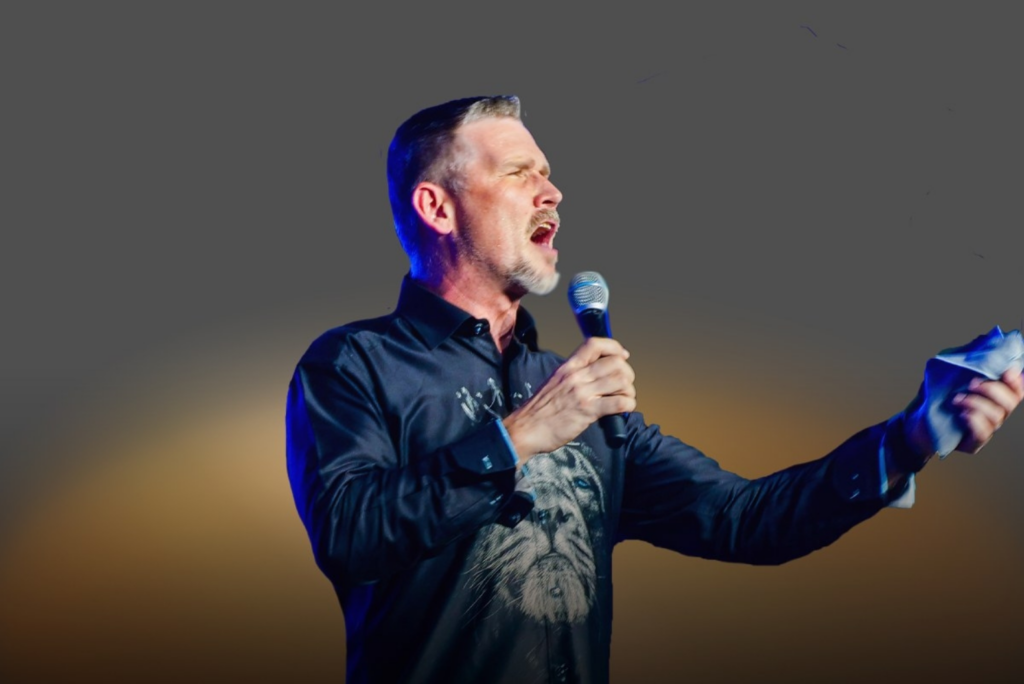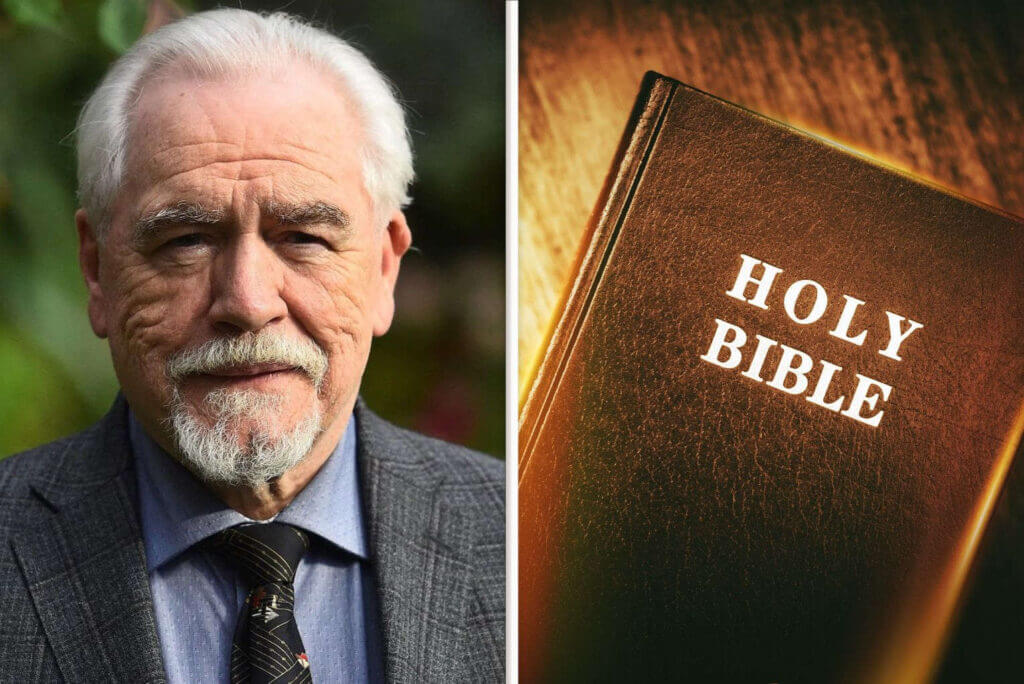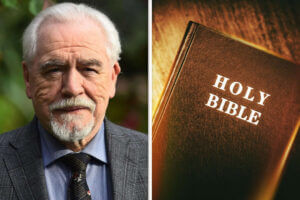Charisma News reported on Nov. 6 that Christian comedian John Crist had exploited his Christian reputation to harass, manipulate and sexually exploit young women from 2012 to 2019. The allegations included individually sexting multiple women during the same time period, initiating sexual relationships with married women and women in committed relationships, offering show tickets in exchange for sexual favors and repeatedly calling these women late at night while drunk. Our investigation involved multiple firsthand testimonies from victims, secondary corroborating sources and nine months of research.
Crist apologized and confessed to mistreating women in a statement supplied to Charisma prior to the article’s publication, canceled his remaining 2019 tour dates and went dark on social media. Netflix indefinitely postponed the release of his standup special, and Waterbrook & Multnomah indefinitely delayed his debut book. More women shared on social media that they and their friends had experienced similar inappropriate behavior from Crist.
But this story isn’t really about Crist, any more than it’s about Bill Hybels or Andy Savage. In 2018, Hybels stepped down from Willow Creek Community Church in a suburb of Chicago, Illinois, after several women accused him of sexual misconduct. Willow Creek’s board of elders initially accused the women of “lying and colluding,” only to later apologize when an investigation showed Hybels had, in fact, sinned. In another case, Savage, then a youth pastor, sexually assaulted a teenager in his care, and church leaders did not report the incident to authorities. When reports broke 20 years later—after the statute of limitations had expired—Savage confessed to the crime and received a standing ovation. He ultimately resigned his pastorate but now intends to lead Grace Valley Church in Memphis, Tennessee.
Sadly, no denomination or branch of Christianity is exempt from abuse. A 2018 report found that 300 Catholic priests in Pennsylvania had raped and molested more than 1,000 children; those crimes were often covered up, and the priests faced few to no consequences. In 2019, the Houston Chronicle reported 700 victims were raped, abused or harassed in Southern Baptist Convention (SBC) churches since 1998. Some of those abusers still work in SBC churches. And in August, news broke that a Madison, Wisconsin-based United Pentecostal church had covered up the sexual abuse of at least four women for more than three decades.
The sad reality is that time and again, the church has failed when it comes to protecting the most vulnerable among us. Some of that is because we live in a fallen world. Sin is inevitable, even among those who follow Jesus. But permitting, covering up or ignoring sin should not be. Charisma spoke to Christian experts and leaders with experience regarding sexual abuse within the church. They shared their stories and explained how to spot the warning signs of abuse in churches and ministries, how to stand by abuse victims and create safe spaces for them, and whether abusive leaders can ever be restored to leadership.
Red Flags and Safeguards
Wade Mullen, professor at Capital Seminary & Graduate School, says abuse can be most broadly defined as “using somebody or something wrongly.” After writing his doctoral dissertation on the ways evangelical organizations try to maintain their reputation and legitimacy following a scandal, Mullen says sexual abuse is often motivated by a desire for power, rather than sexual desire. Abusers usually seek to possess their victims.
“What the abusive person is going to do is try to gain control over that person, as much control as they can, so that they can use that person in whatever way they please,” Mullen says.
Mullen says vulnerability, ingratiation (flattery) and favor rendering (quid pro quos) are common tactics of abusers seeking to gain control. Abusers will intentionally groom victims and even the surrounding church to see these strange behaviors as normal. Once they’ve ingratiated themselves, abusers will attempt to isolate the person whose trust they’ve won. This can be digital isolation—such as moving conversations to Snapchat, which deletes messages after they’ve been viewed, to avoid a paper trail—or physical isolation, like inviting someone to their hotel room.
“The abusive person wants to create moments of isolation because it’s in that place of isolation that they can more clearly cross boundaries,” Mullen says. “They can take that risk.”
Viewing sexual abuse as a power issue rather than a lust issue may seem counterintuitive. Numerous studies have highlighted Christians’ struggles with pornography, lust and infidelity. It is easy to project our own struggles onto the abuser and imagine how we could have behaved the same way—”There but for the grace of God go I.”
But while it seems logical, experts say it’s inaccurate. Author and speaker Mary DeMuth says “all sexual abuse is an abuse of power.” Ruth Everhart, a Presbyterian pastor who recently wrote The #MeToo Reckoning, agrees.
“People compare [sexual abuse] to a married person kissing someone outside the bounds of their marriage,” Everhart says. “It’s so much different than that. It’s so much more than that. Abuse is not just a little bit of lust that got away. Usually the abusive relationship has been developing for a long time before it gets acted out in such a way that it gets exposed.”
For that reason, every church needs safeguards in place. These systems prevent abuse and catch would-be abusers in small things before they escalate. Mullen says the most basic step is to educate the congregation about how to recognize abuse.
“We can’t name something if we can’t identify it, so [then] we can’t confront it,” Mullen says. “It would be very helpful, then, for the community to have a way for people who suspect wrong behavior or suspect grooming behavior to be able to report that in a safe way. Then [start] a process for following up on that behavior.”
Churches should have protocols and policies that establish what constitutes appropriate and inappropriate behavior, and this should be clearly communicated to all staff and volunteers. (Many denominations already have policies like this in place, but some member churches fail to enforce or communicate them.) Other steps include posting hotline numbers and information for domestic violence shelters in church restrooms or doing a sermon series about #MeToo and the Bible’s response to sexual abuse. Everhart says these small steps can telegraph to victims that the church’s leadership will listen if they speak up.
Pastor Brady Boyd has added additional safeguards at New Life Church in Colorado Springs, Colorado. He noted that abuse most often happens when volunteers are away from the church building during overnight trips, so New Life stopped holding overnight retreats. He also calls references before accepting new volunteers or staff members, noting it’s “amazing” how few churches check references. Boyd says these measures won’t prevent all abuse, but churches must protect their flock.
“We’re not making those decisions out of fear,” Boyd says. “But I think we are making them out of wisdom and trying to be thoughtful about the risk that we’re taking with people.”
Slow Down and Listen
When Boyd was appointed senior pastor in August 2007, he inherited a wounded church. Ted Haggard, the church’s previous pastor had fallen from grace and left the church after a series of sins became public. Boyd knew he had two major tasks to accomplish: to regain trust and to create an environment where emotional trauma could be healed. He realized firsthand the wide-reaching impacts pastoral abuse can have on a church community.
“There were three groups of people at New Life when I arrived,” Boyd says. “The first group trusted me because I was their pastor. They welcomed my leadership. They gave me their respect and they were willing to let me be their pastor. There was a second group that was willing to trust me, but I would have to earn it. They needed to watch me for a season of time to make sure I was trustworthy before they would give me their trust. And then there was a third group of people who were irreparably harmed by what had happened. What I mean by ‘irreparably’ is not that they could not be healed by God’s grace; it was that I would not be the agent for that healing. They would probably have to go somewhere else, to another environment, to experience the healing they needed.”
His job of healing New Life grew harder when—on his 100th day as pastor—a gunman opened fire on campus and killed two women. The church had again been traumatized. Boyd brought in 100 counselors to give pro bono therapy to anyone who needed it. He was surprised to learn that what most people wanted to talk about and process was not the shooting, but the impact of Haggard’s departure. The abuse had hit them harder than the shooter.
“They had never really been allowed to process their pain,” Boyd explains.
Boyd says the church often moves too fast for its own good.
“Nobody gets healed on the run,” he says. “Local churches, especially in American culture, are notorious for going really fast. In other words, they move from one Sunday to the next. They go from one big event to the next. They are obsessed with attendance and growth. … Healing doesn’t happen in those fast-paced, market-driven church environments. Healing happens in a pastoral, nurturing environment. That’s why when a lot of people experience pain in the local church, the local church doesn’t know how to slow down and help them. So people end up leaving the church.”
By slowing down, Boyd says New Life created a “culture of care.” Twelve years later, the church has experienced very little staff turnover despite the flurry of traumatic events.
“All we did for three or four years is we had worship, prayer, taught the Scriptures and met in small groups,” Boyd says. “That’s all we did. Our church didn’t grow as a result, because we were trying to get healed. But I’m grateful I took that time. I’m grateful I didn’t give in to the pressure of getting back on the church growth treadmill, or I would have caused irreparable harm to some people who needed time to get healed, including my staff.”
Mullen says the length of that healing process depends on the depth of the wound. That’s another reason why the church must slow down—to take stock of how badly it’s been hurt.
“You need to be willing to go through a process that is going to, by its nature, take a long time,” Mullen says. “I think [assigning a time frame for healing] is a fault of some of our approaches to recovery and healing in our evangelical circles. I have seen two-year restoration plans for pastors. I don’t think there is a blueprint, and I think we make a mistake when we try to create one.”
Dr. Doug Weiss, a clinical psychologist and the head of Heart to Heart Counseling Center in Colorado Springs, Colorado, says slowing down and listening may be an oversimplified solution to the problem of abuse. He also suggests a unique option he uses in his own clinic: annual polygraph tests.
“If the church wanted to stop abuse in one year, it could have every pastor do a polygraph around porn, self-behavior, inappropriate touch with others or sex outside of marriage every year,” Weiss says.
He says if churches gave polygraphs to new hires, they would discover abusers before they came on staff: “This is simple to stop leaders abusing sheep.
“It’s not the church that doesn’t want to heal,” Weiss says. “It’s the leaders that won’t give themselves and their team the accountability. Until leaders lay down their lives for their friends and get real, just asking the church to be better is questionable and passing the buck instead of leading by a measurable standard of integrity.”
After listening and implementing safeguards, the next step is to sincerely listen to victims’ stories and refrain from snap judgments. Dr. Diane Langberg, a psychologist who has worked with trauma survivors and clergy for 45 years, says, “Trauma is the missions field of our time.” Yet Everhart says many victims are not believed. In cases where they are believed, they may still be treated with shunning and contempt because their stories make the listener feel uncomfortable. She says church members can have “a hard time believing that the perpetrator’s a perpetrator. There’s this knee-jerk reaction to defend the person, because usually it’s a person who’s known and loved by the congregation.”
“We need to train our congregations to be listeners rather than jumpers to conclusions,” DeMuth says. “To really come alongside a sexual abuse victim is to listen to them—not to preach, not to send Christian cliches or even verses that have become cliché, but to do the Romans 12 thing to weep alongside those who weep and to identify with those who are hurt.”
DeMuth says the church has made progress with this, but the common narrative is still that well-known leaders get the benefit of the doubt over their less-powerful victims. Boyd says #MeToo has been a “wake-up call” for the church to listen more carefully to those who bring accusations.
“We sometimes give extra grace and attention to the one who caused the abuse, and we’ve done a poor job of listening to the victims,” Boyd says. “We’re quick to defend the well-known leader and dismiss those who are making the accusation.”
But won’t believing victims lead to an influx of false accusations? While these do occasionally happen, they are rare enough that we should not base our behavior on them. A 1996 FBI study found that only 8% of rape allegations were “unfounded” after thorough investigation. A 2010 study in the journal Violence Against Women estimated the false-allegation rate as between 2% and 10%. And those false allegations rarely ever lead to criminal consequences. A 2005 study by the British Home Office found that of 216 false allegations, only six led to an arrest, only two alleged perpetrators had criminal charges brought against them, and both falsely charged individuals were found to be not guilty. The study concluded, “There is an overestimation of the scale of false allegations by both police officers and prosecutors.”
Furthermore, a 2012 study by the U.S. Department of Justice found the number of false accusations is dwarfed by the number of rapes and assaults that are never reported; from 2006 to 2010, only 1 in 3 rape or sexual assault victims ever reported the incident to police. In other words, data and experts alike suggest that, generally speaking, we should believe victims unless given specific evidence not to do so.
“There are people who might make false accusations for some kind of monetary gain,” Boyd says. “But oftentimes, that’s the first thing we think of when we hear these accusations, and we have got to get out of the habit of immediately dismissing the victims’ complaints. We have to listen better. It’s the reason why a lot of women, especially, won’t come forward and talk about how they’ve been abused—because they know they’re going to be immediately dismissed. They’re going to be shamed, and they’re going to have to prove it beyond reasonable doubt before they’re ever taken seriously.
“I’ve counseled women who have said to me, ‘I would love to come forward and tell my story, but I cannot. It would cost me my job. It would cost me my public reputation. So I’m just going to live with the results of this abuse rather than come forward.’ That’s heartbreaking for me as a pastor.”
Expose the Wound
Once abuse has been reported, the next step is to expose the wrong so the perpetrator cannot hurt anyone else.
“In a case where somebody is abusing multiple women, it’s not a private matter,” Mullen says. “It’s not a personal matter. It’s a public matter. It’s a community matter.”
He adds: “The priority has to be on protection for the community—to prevent further victims from being harmed—and also to allow past and current victims the freedom they need to be able to move forward in their own lives. Because so often those victims are forced into an agreement with the abuser to maintain his secrets. So if something like this isn’t made public, then the victims feel as if they must keep all of this to themselves. Once it’s made public, for many victims, it’s a moment in which they feel free because they don’t have to maintain these secrets anymore. The community is saying basically to the abuser, ‘We’re not going to let you have power over your victims anymore.'”
For most grievances, the Matthew 18:15-17a template for conflict resolution is prudent. But abuse requires a different response, Mullen and DeMuth say. Mullen says privately confronting an abuser but allowing them to remain in power is like scolding a wolf but letting it remain in a flock of sheep. When there are victims, abuse is no longer a private matter, and private confrontation is inadequate and misguided.
Matthew 18:17 itself says some matters must be brought before the entire church. And Scripture speaks to the issue of abuse beyond Matthew 18. DeMuth says because man is made in the image of God, we know every person is worth protecting—and that when the people of Israel incurred God’s wrath, it was often because they were exploiting the widow, the poor, the orphan and the alien.
“Handling it in-house is actually harming the victim, because what it says is that we value the reputation of our awesome person in leadership more than we value the cry of the one who’s been harmed by them,” DeMuth says. “… We hear weird language like, ‘Don’t touch the Lord’s anointed.’ Maybe if the Lord’s anointed is exploiting their people, they need to be touched—and talked about. No one is above the Lord, and no matter what position they have, that position doesn’t insulate them from critique.”
Boyd says God’s heart is clear throughout Scripture regarding how the church should treat the vulnerable, mistreated and abused.
“James 1:27 tells us, ‘Pure religion undefiled before God and the Father is this: take care of widows and orphans in their distress, and keep your heart unspotted from the world,'” Boyd says. “That has really been my life verse since I was a young man in my early 20s. I think James, the brother of Jesus, understood that the primary mission of Jesus was to bring good news to the marginalized. … The gospel is really, really Good News to those who have been pushed to the outsides of our culture. Oftentimes, it doesn’t sound the same for people who have power and influence.”
Romans 13 and state laws matter too; Christians cannot just cover up crimes like assault by dismissing them as sins to be handled internally.
“We are very quick to spiritualize bad behavior, and that is a way of letting abusers off the hook,” Everhart says. “Because it’s not just a matter of what’s in one’s heart. … There’s a sin and there’s a crime, and we can’t ignore one over the other.”
“The grace of God can reach beyond prison walls and you can find the grace of Jesus behind those prison walls,” DeMuth adds. “But there are consequences to those actions. If you have to register as a sex offender for the rest of your life, that is the consequence for your actions. God does not remove those consequences. That’s part of living in a world according to Romans, where we have to submit ourselves to the governing authorities.”
What About Restoration?
Following news that a leader has become abusive, it’s only a matter of time before someone asks when that leader can return to ministry. This story has played out many times; plenty of leaders get removed from one church or ministry only to start anew somewhere else. Many Christians see it as a natural outflow of their faith: I have been forgiven of great sins, and therefore I must quickly forgive others and return them to fellowship and good standing. But experts say both the theology and psychology underlying the question of restoration are more complicated.
“The community can extend forgiveness the moment after they’ve been wronged,” Mullen says. “I think that is often between a person and God, whether or not they choose to forgive the person who has wronged them. But that forgiveness doesn’t cancel out the pursuit of truth.”
In other words, the reality of forgiveness does not negate the need for justice to be administered. Everhart gives the example of David and Bathsheba. After raping Bathsheba, David was eventually forgiven for his sins. But to get there, he spent days in mourning, and God killed the son conceived from his sin. Our sins will always have consequences.
“Forgiveness and justice are both really powerful concepts, and the way they meet is a problem for churches,” Everhart says. “There’s a tendency to just jump over justice and move straight to forgiveness. But if there’s behavior that needs to be forgiven, that also means there’s justice to be pursued. So this overemphasis on forgiveness is a problem. Can an abuser ever be reconciled? Well, God’s grace is wide and deep. I’m sure that possibility exists. Have I ever seen it? No.”
Boyd says whether an abuser can be reconciled depends on the nature of the abuse, but it’s “pretty rare” that an abusive or violent leader could ever return to leadership: “It doesn’t mean they can’t be restored into salvation. They’re not going to miss heaven over this. But church leadership is a place of sacred trust, and when that sacred trust is broken, especially under those premises, I think it’s hard to bring them back in, if ever.”
More broadly, he says, both abuser and victim alike cannot find healing while still coexisting in the same space, because of the power dynamics at play.
“Hypothetically, if I had been caught sexually abusing my two children, and the police came to my house, the first thing [government workers] would do is remove the person of power who was abusing people from that house,” Boyd says. “Because they realize a person of power and influence has undue access to someone. They can’t be healed, and the children who have been abused can’t be healed if those two parties are living together. So the dad will be separated.”
DeMuth believes a truly repentant person would not return to the church they hurt, knowing their presence would simply retraumatize the victims.
“I don’t know that it could happen, unless by a miracle, that a person could go back into that situation without traumatizing all the people they’ve already traumatized,” DeMuth says. “Of course, on the other side, in the new heavens and the new earth, we will have that reconciliation perfectly. But we do live on a broken planet. I’m not saying it can never happen. I would just say it’s excessively rare.”
Beyond the question’s practical implications, Mullen says an abuser who is already thinking about returning to leadership will fail to truly learn and grow from the experience. They may just become sneakier.
“So often we approach these things with that assumption in mind: ‘We need to get this person to a place where they can continue doing their work again,'” Mullen says. “And I would say the best thing for that person and for the community is to stop assuming that is even possible. Because otherwise that can very easily become the goal, and so the entire process can be framed around a wrong goal. Then the person who’s going through that process—who’s a deceiver so often—can very easily deceive the people involved just so that they can take possession of what they lost—namely, their platform.”
The temptation to prematurely restore an abuser may be particularly great for those in leadership. Mullen says that’s because abusers use different tactics when addressing those who hold power or influence they need in order to get ahead.
During his research, Mullen found that abusers will drop the ingratiation or intimidation tactics they used before (on those with less power) and rely on supplication. They may “plead for help or highlight their own hurt or suffering when speaking to those who have power over them.” They may even deceptively appeal to common biblical values.
“It’s almost like [abusers] have this whole body of material to work with, which falls in the category of their relationship to God,” Mullen says. “[They may say,] ‘This is what God wants us to do,’ or ‘God’s at work in me right now. He’s healing me.’ There’s this whole body of material that they can use that makes their deception a little bit more sophisticated and more powerful.”
Everhart agrees, saying that asking whether a fallen leader should ever be restored to leadership is “the wrong question.”
“The simple answer is no,” she says. “… I’ve been ordained 30 years. I don’t hold that lightly. I could do something that would remove my ability to function as a pastor. The world does not owe me an ordination. The church does not owe me its employment.”
Mullen concurs. He says he keeps hearing people ask, “Should this fallen leader be restored? Why should we ruin their careers by making this public?” He counters with a question of his own: “Why is that so important to us?”
“I think it reveals something about the way in which we view people in our lives who have occupied positions of power,” Mullen says. “They have given us something that we have valued. Perhaps we have valued this pastor’s preaching or what that comedian has brought to our life. We may be biased and selfish, and we want to see that person restored so we can once again enjoy what it is they were offering to us. I just think there’s something unhealthy about the preoccupation with whether or not the person can get back into that position.”
In the end, abuse has no easy answers. Perhaps our desire for neat resolution speaks to why the church continues to struggle with this topic—and with lament more broadly.
“It’s something kind of interesting to think about, right?” Everhart says. “Like, why is it hard for a church community to have their pastor stripped of their power? To have a loved person stripped of their power? It’s a loss for them. So they don’t want to grieve that loss. They don’t want to deal with that loss. They just want to restore what once was, as if they can go back to an earlier, more innocent time. … Maybe some of this is just about our inability to grieve.”
The church has endured a flood of tragic testimonies of abuse, and each new story cannot help but shake your core. Maybe, like New Life Church, what the church really needs is to slow down and grieve.
Charismatics are fond of calling for revival. But DeMuth says repentance must take place before revival can come—and our corporate complicity in this sin has damaged our witness and prevented a move of God.
“When revival comes, it always comes on the heels of deep repentance,” DeMuth says. “I believe this is one of the most egregious [sins] that’s happened in church. We must corporately repent for it. We will not see that kind of revival we keep praying about and giving lip service to if we’re not willing to corporately repent, like Nehemiah did. He was actually pretty awesome and good, but he repented for the nation of Israel.
“We need to have that same kind of corporate lament and repent over what we have done and what we have allowed. We have protected reputation over the cries of those who have been exploited. … We have to address the spiritual elephant in the room honestly, with lament and sadness. And then I believe the light that can come through acknowledging our sin will begin to bring in the kind of revival we’re longing for.”
ONLINE EXCLUSIVE: Read the original report at cristreport.charismamag.com.
Taylor Berglund is the associate editor of Charisma magazine and a host on the Charisma Podcast Network.
CHARISMA is the only magazine dedicated to reporting on what the Holy Spirit is doing in the lives of believers around the world. If you are thirsty for more of God’s presence and His Holy Spirit, subscribe to CHARISMA and join a family of believers who choose to live life in the Spirit. CLICK HERE for a special offer.
See an error in this article?
To contact us or to submit an article























